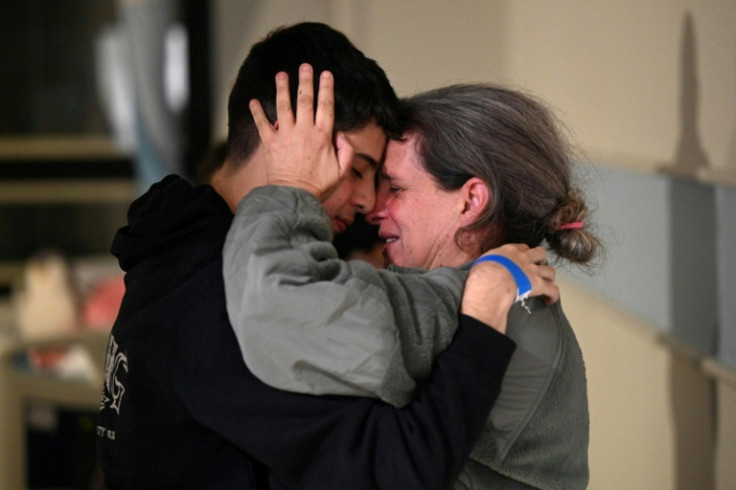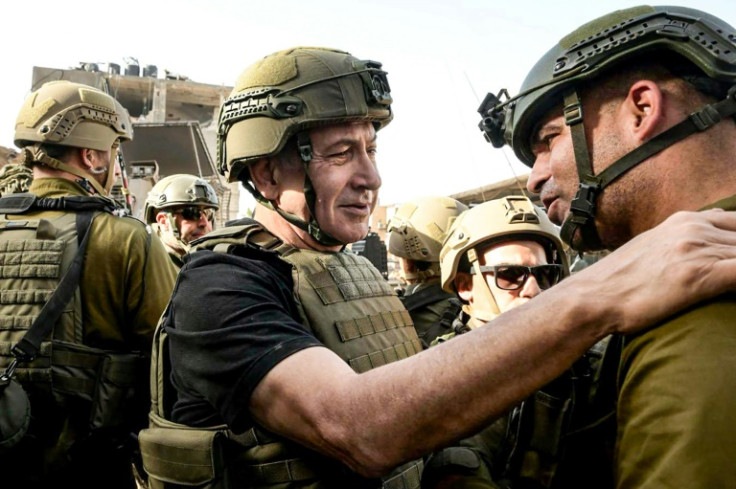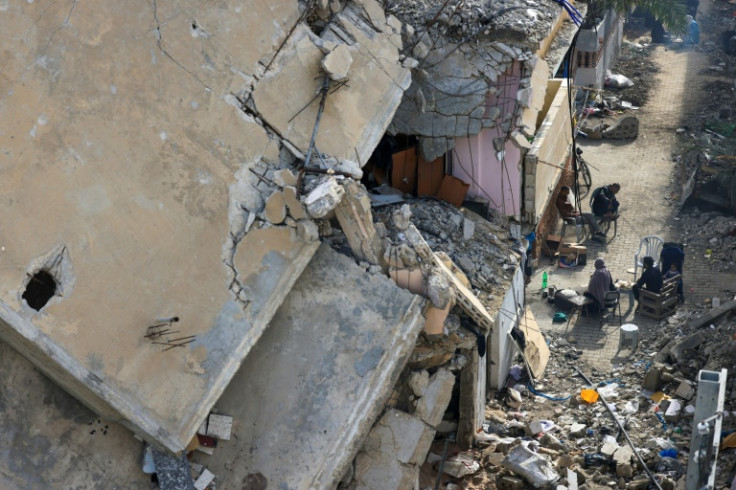As Clock Ticks Down, Calls Mount For Hamas And Israel To Extend Truce

International pressure mounted on Monday for Hamas and Israel to extend their truce, as the clock ticked on a pause in fighting that has allowed for the release of scores of hostages and prisoners.
After US President Joe Biden said the pause should continue to allow humanitarian relief into Gaza and more Israeli hostages to return home to their families, senior European Union and NATO officials added their voices to his call.
If no extension is agreed the temporary truce is due to expire at 7:00 am (0500 GMT) on Tuesday, threatening a return to intense fighting after the four-day pause.
As part of the truce deal, Hamas has so far released 39 Israeli hostages, including a four-year-old girl orphaned by the group's October 7 attack.
Israel has freed 117 Palestinian prisoners in exchange under the terms of the agreement. A further 19 foreign nationals have also been released from Gaza under separate arrangements.
Tearful reunions of families and hostages, released in exchange for dozens of Palestinian prisoners, have brought the first relief from images of civilian death and suffering in the seven-week war, with hopes high for an extension.
"That's our goal, to keep this pause going beyond tomorrow so that we can continue to see more hostages come out and surge more humanitarian relief into those in need in Gaza," Biden said Sunday, calling for Hamas to no longer control Gaza but for operations to remove them to be paused for "as long as prisoners keep coming out".
The EU's foreign policy chief Josep Borrell echoed this call as the truce entered its final 24 hours, saying: "The pause should be extended to make it sustainable and long lasting while working for a political solution."
"Nothing can justify the indiscriminate brutality Hamas unleashed against civilians," he said. "But one horror cannot justify another horror."
NATO's secretary general Jens Stoltenberg also weighed in, ahead of a meeting of allied foreign ministers in Brussels.
"I call for an extension of the pause. This would allow for much needed relief to the people of Gaza and the release of more hostages," he told journalists.
Hamas has signalled its willingness to extend the truce, with a source telling AFP the group told mediators they were open to prolonging it by "two to four days".
"The resistance believes it is possible to ensure the release of 20 to 40 Israeli prisoners" in that time, the source close to the movement said.
Under the truce, 50 hostages held by the militants were to be freed over four days in exchange for 150 Palestinian prisoners. A built-in mechanism extends the truce if at least 10 Israeli captives are released each extra day.
But some hostages are believed to be held by Palestinian militant groups other than Hamas, potentially complicating future releases. Israel is also facing pressure from the families of hostages, as well as allies, to extend the truce to secure more releases.
Three successive days of hostage releases have buoyed spirits in Israel, with tearful reunions weeks after Hamas militants poured across the border on October 7, killing 1,200 people, mostly civilians, according to Israeli officials.
In response, Israel launched a military campaign to destroy Hamas, killing nearly 15,000 people, mostly civilians and including thousands of children, according to Gaza's Hamas government.
The third group of hostages released Sunday included a four-year-old American citizen called Abigail whose parents were both killed in the Hamas attacks.
"What a joy to see her with us. But on the other hand, what a pity that she returns to the reality of not having parents," Israeli Prime Minister Benjamin Netanyahu said.
"She has no parents, but she has a whole nation that embraces her," he added.
Also among those freed Sunday was an 84-year-old woman who was rushed to intensive care in critical condition "after serious neglect", medical officials said.
Separately, an Israeli soldier rescued from the Gaza Strip welcomed the releases of her fellow hostages, in her first public comments since she was freed.
Ori Megidish, 19, was operating an observation post on the Gaza border when she was seized in the Hamas attacks. Her rescue was confirmed by the Israeli military just over three weeks later, but no details have since been released.
In a relaxed video filmed at her home and posted to her TikTok account, she said she was "fine" and "happy to see all the moving clips of hostages returning to their families".
Israel has faced mounting pressure to extend the pause mediated by Qatar, the United States and Egypt, though its leaders have dismissed any suggestions of a lasting halt to the offensive.
"We continue until the end -- until victory," Netanyahu said in Gaza on Sunday, on the first visit by an Israeli premier since 2005.
His office has proposed a war budget of 30 billion shekels ($8 billion) for 90 days.
Wearing military fatigues and surrounded by soldiers, Netanyahu vowed to free all the hostages and "eliminate Hamas", in footage posted online by his office.
In another sign of mounting international concern, UN rights experts called Monday for independent investigations into alleged war crimes and crimes against humanity carried out in Israel and the Palestinian territories since October 7.
Morris Tidball-Binz, the United Nations special rapporteur on extrajudicial executions, and Alice Jill Edwards, the special rapporteur on torture, issued a joint statement stressing the need for "prompt, transparent and independent investigations".





© Copyright AFP 2024. All rights reserved.





















